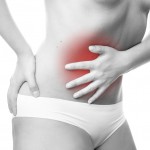Irritable Bowel Syndrome – 10 million and counting!
A modern epidemic?
Everyone knows someone who has this condition. With around 10% of the UK population having the symptoms of IBS, it’s pretty much a given that we all know at least one or maybe two people who have it. It may be a family member, a friend, or a colleague at work. You may be one of the 10 million that have this frustrating and, sometimes debilitating condition.
10% of the UK population are afflicted with the symptoms of IBS but, in my experience, this is a very conservative figure, and is more like 20 – 25%.
IBS has four different classifications – IBS (C) where the predominant symptom is constipation, IBS (D) where diarrhoea is predominant, IBS (A) where there is alternating constipation and diarrhoea and IBS (post-infection) where IBS has developed as a result of a gut infection, perhaps food poisoning. In my opinion, there at least a couple of classifications missing here – IBS (B). B for bloating, and IBS (P). P for pain.
Of the IBS sufferers I treat at the Clinic, at least 80% of them have bloated bellies. Many of them look pregnant, and this can be distressing and embarrassing. They wake up in the morning with nice, flat tummies, but by the afternoon, their tummies take on a life of their own and begin to expand. By the evening, they are extremely bloated and uncomfortable.
Pain. This is the most distressing symptom of them all. Many people with IBS suffer with abdominal pain, some intermittently and some constantly, with the pain waking them up in the middle of the night sometimes. This pain can be very worrying for some IBS sufferers. They’ve had medication from their Doctor, they’ve had a barrage of tests, scans and x-rays at the hospital and, guess what, the Hospital can’t find anything wrong. All the tests are negative. Now this is a good thing. At least it rules out the fact that there is nothing more sinister causing the symptoms like ovarian cancer (almost identical symptoms to IBS). However, it doesn’t help the poor IBS sufferer who is still getting the pain. So what can you do about it?
First of all, I would recommend that you try the following:
- Don’t worry! Although a distressing, and sometimes painful condition, IBS is not life-threatening, and research has proven that having IBS does not lead to a higher risk of bowel cancer.
- ‘Rest’ your digestive system by eliminating gluten and cows milk products for a couple of weeks. These two can cause hyper-sensitivity in the stomach and gut.
- Avoid caffeine too, and don’t drink carbonated drinks. Caffeine irritates the stomach, and with carbonated drinks you’re just adding more gas.
- Chew your food well, and don’t drink water with your meals. Water will dilute your digestive enzymes, making them weaker and so less efficient at breaking down your food.
- Try not to eat when feeling stressed, anxious or angry. The digestive system will ‘close down for business’ in these situations. Not always easy I know, but eat when feeling relaxed, and in an upright position, not sat on the settee watching tv!
- Take a multi strain probiotic with food once a day to re-colonise and re-populate your intestines with lots of beneficial bacteria. I haven’t treated a single IBS sufferer (and I’ve treated thousands at the Clinic) that didn’t have an imbalance in their gut flora, and needed probiotics.
If you have IBS, I hope the above information and advice helps you in your quest to improve your condiiton. If you need any help or advice, please don’t hesitate to contact me for a chat.
Linda Booth MACH RT
Digestive Health Practitioner & Registered Colon Hydrotherapist IBS, Digestive Health & Gut Disorders Clinic Plains View GP Surgery
57 Plains Road
Mapperley
Nottingham NG3 5LB
0115 9676699

Leave a Reply
You must be logged in to post a comment.